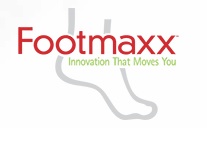FYZICAL Therapy & Balance Centers is a national franchise company offering physical therapy, balance retraining and fall prevention, sports rehabilitation, and individualized fitness and wellness programs. The company was founded in 2012 by Jim Abrams, an original franchisee of the Weight Watchers company, who went on to found several other successful, national franchise brands, including Service Experts, Clockwork Home Services, One-Hour Heating and Air Conditioning, Benjamin Franklin Plumbing, and Mr. Sparky Electrical Services.
FYZICAL Therapy began franchising in 2013, and today, has a total of 192 locations, 17 of which are company-owned.
Recently, Business View Magazine spoke with Matt DiMauro, Senior Vice President for Marketing & Franchise Development. The following is an edited transcript of that conversation:
BVM: Can you begin by talking a little bit about Jim Abrams and the founding of FYZICAL Therapy?
DiMauro: “Jim has a history of disrupting industries. His specialty is business. In every industry he entered, he began providing small business expertise to small business owners that had never received formalized business training or education. When thinking about physical therapy, and the medical profession as a whole, he discovered that physical therapists – PTs – did not receive any formal business education while in PT school. So, identifying a need, where the industry is comprised of thousands of independent physical therapists who, traditionally, don’t know anything about business, he felt there was a real opportunity in terms of applying his business knowledge acquired over decades building big, national brands, into a niche area.
“When he was looking at how he would build an organization, studying macro-healthcare trends, he saw America is aging – we have ten thousand Baby Boomers retiring every single day. He realized that balance and vestibular dysfunctions were a huge, unmet need in the United States and would continue to increase as America ages. So, early on, he went to look for a balance program that he would be able to formalize up and export into franchisee’s businesses.
“After months and months, he finally found a company called the Werner Institute of Balance. Ultimately, he ended up acquiring that practice because it had the best balance protocols that existed in the world. Once we had the Werner Institute of Balance, we were able to export all the intellectual, proprietary information that this organization had built over two decades, and begin helping existing, private practice physical therapists implement business expertise in a business that traditionally didn’t have any, and then, begin to differentiate themselves with the addition of state-of-the-art balance and vestibular services that no one offered. Still today, if you ask yourself: ‘Who does balance?’ probably no one comes to mind. And that’s one of the primary reasons why Jim got into the profession and what’s led to the tremendous success of FYZICAL, thus far.”
BVM: How did the company first launch its franchise operations?
DiMauro: “Early on, we targeted existing private practice physical therapists for what we call a ‘conversion model.’ After becoming a franchise, you rebrand to FYZICAL Therapy & Balance Centers and being implementing the FYZICAL system. We have also had innumerable start-ups. Right now, we have 14 locations being built from scratch. So, a significant percentage is conversions. Out of our 17 company-owned, only one of those was a start-up.”
BVM: If I were a practicing physical therapist, why would I want to convert and become a FYZICAL franchisee?
DiMauro: “The overall industry of physical therapy is experiencing declining reimbursement; it’s affecting every private practice owner. It’s simply due to our inefficient healthcare system. In the past, we would only fix someone who was already broken. Today, there has been a shift towards prevention as it’s more cost effective for the healthcare system. Looking at the past two decades of physical therapy, the rate of reimbursement has declined somewhere around a third, taking into account inflation. So, in physical therapy, today, you simply can’t keep doing what you’ve always done. Expenses are increasing, rents are going up, utilities are going up, etc. and that’s a fundamental business challenge. So, the business model within physical therapy is obsolete; it’s a broken business model and we have the answer.”
“FYZICAL provides a revolutionary, innovative business model with ways to be less dependent on insurance reimbursement. Our business model is based around prevention and creating lifetime relationships with our patients. Commonly, at the end of physical therapy, you discharge your patient. If you were to come to a traditional physical therapy practice – let’s say you had a knee replacement – they would look at your knee and nothing else; they would fix your knee and nothing else; they would fix your knee and then send you on your way. At FYZICAL, whatever brought you in, we provide. At FYZICAL, it’s very different. We take a holistic approach; we’re looking at your entire body. So, at time of discharge – after we fix you for whatever brought you to us – we will provide a proprietary muscular/skeletal assessment that we call ‘BodyQ.™’ It’s similar to an IQ test that you would take as a child to compare your intelligence. BodyQ does that for your body – your muscles, your joints, your vision, your hearing – so we can pinpoint challenges before they become serious injuries. BodyQ’s a cash-based service and it’s also a service that our patients can elect to do on an annual or bi-annual basis. So we are helping our franchisees create residual income opportunities that are not dependent upon insurance reimbursement.”
BVM: So, in a sense, you’re cross-selling.
DiMauro: “We’re creating residual products and services; bridging the gap into health and wellness. As previously stated, we have a big focus on prevention – moving from episodic care to preventive medicine. A lot of our programs are based around addressing challenges today before they become serious tomorrow.”
BVM: Who are your potential franchisees?
DiMauro: “Originally, we launched targeting physical therapists for the conversion model. Today, we also target otolaryngologists – ENTs are what they’re commonly called – Ear, Nose, and Throat doctors. Otolaryngology is a physician specialty that deals with a plethora of patients with dizziness. And ENT physicians refer patients to physical therapists. So, instead of going to the last source – physical therapists – we’re going to where the patient is referred in the first place. Just like orthopedic surgeons have been successful in adding physical therapy to their practices, that’s exactly what we’re doing with ENTs; we’re adding balance centers into existing practices, where they can treat a patient along the continuum of healthcare. So, we’re now targeting ENTs; otolaryngologists are the number one target market, and then PT conversions follow as the secondary.”
BVM: How do you vet your franchisees? And then, once you have decided that they are potentially good prospects, how do you train and support them?
DiMauro: “In terms of vetting, it’s very different based on both target demographics. The way that we vet PTs is vastly different from otolaryngologists. I’ll start with the ENTS – that’s what we call them, for short. Otolaryngologists are in the top one percent in terms of difficulty to become that type of specialist as a physician. We already know they are, very clearly, able to operate a medical practice and have no concerns with the patient care aspect. So, the vetting comes more on the business side: ‘What type of manager are you? What type of capital do you have available? Do you have enough space to be able to build a balance center? To this day, we have not run into an otolaryngologist that has not qualified. Otolaryngologists make a very good living as surgeons; so typically, there are no capital restraints with ENTS, whatsoever. The only challenge that we come across, from time to time, is space. So the opportunity may warrant moving an entire practice into a larger building to accommodate a balance center. To sum up our vetting process for ENTs: they must be a private practice and not owned by a hospital.
“For PTs, it’s a little bit different. We target successful physical therapists that are seeking a way to differentiate themselves from the competition – hospitals and the large, regional players – while remaining independent. So, we are looking for those PTs with multiple locations, first – two, three, four, or five-plus locations that, when adding balance and other products and services to their therapy practices, their revenue will continue to skyrocket. So, capital requirements are necessary; space isn’t an issue because they’re already in physical therapy; the business side of things is not an issue because that’s why we exist. So, our vetting process pretty much comes down to capital and background checks: ‘Do you have the necessary capital to implement the program that we have? ‘Do you have a team that can implement what we can offer you?’ ‘Are you willing to do the work to implement the FYZICAL system?’”
BVM: When you award a franchise to an otolaryngologist, where do they get their physical therapy personnel?
DiMauro: “When they add a balance center to their practice, one of the main benefits is that they’re able to leverage the same administrative staff they already have in-house – the same receptionist, the same billing and collection team, etc. They will need to hire a physical therapist. We walk them through how to do that, from where to put the job posting, what questions to ask on the interview, how to compensate this person, how to manage this person – all the way through. Now, on FYZICAL.com, we receive a tremendous amount of résumés. We’re sitting on over a thousand, right now.”
BVM: Do you then train then those physical therapists in your own systems?
DiMauro: “When it comes to training, the founder of The Werner Institute of Balance, Brian Werner, has been retained as our National Director of Balance. He trains every physical therapist that’s a part of FYZICAL in balance and vestibular to receive their credits, which are called CEUs, for their physical therapy licensure. We have different levels of competency when it comes to clinical balance. Some training is done online – we have about 180 different modules where a therapist can get up to speed on Level 1, in a couple of days. But when it comes to getting to Level 2 and Level 3, those training sessions are done in person, onsite, because we are actually treating patients throughout the training.”
BVM: Are there any other companies doing what you’re doing?
DiMauro: “We don’t have anyone competing in the realm of balance and vestibular therapy. It would take someone two decades to get to where we are today. When it comes to franchising, in general, for physical therapy, there are a couple of other players out there, but all of these other franchisors for physical therapy still follow the obsolete business model, and are primarily orthopedic-based. Here’s an example of what I’m talking about: If you had back pain, and you were to ask yourself, who treats back pain? You would find that physical therapists treat back pain, in addition to acupuncturists, massage therapists, pain management specialists, orthopedic surgeons, etc. But ask yourself, ‘Who treats balance?’ Really, it’s no one. As a franchise model, we don’t really have much competition.”
BVM: Has anything occurred recently or in the near-term future that will impact the way you do business?
DiMauro: “Because we found the clinical integration between audiology and physical therapy to be so substantial, we are going to begin working with private practice audiologists by helping them add a balance center to their practice. In addition, we are going to be moving, for the first time, into the financier marketplace and assist with start-ups within healthcare. Our model is now at a point where we can begin targeting financiers. So, in 2017, our target demographic begins to extend to include: audiologists, financiers, and other physician specialties.
BVM: You mean that a potential franchisee can have little or no background in the medical field, but can still utilize FYZICAL Therapy as an income producer?
DiMauro: “Correct, anyone will be able to acquire a franchise and be wildly successful.”
BVM: Do you have multiple franchisees or do most of your franchisees have one unit?
DiMauro: “It’s a mix. We have one that has ten, another with nine, some have four or five, some have one. More often than not, our franchisees are looking for high growth, so they are looking to expand. We do assist them in doing that, and our primary model is via acquisition. We’ve had innumerable franchisees acquire other private practice centers to continue expanding their footprint.”
BVM: What are the company’s objectives for the long-term, say five years out?
DiMauro: “Without a doubt, we’ll be international. We already consider ourselves a healthcare franchise. As we continue to expand into other specialties, like otolaryngology, neurology, and audiology, there is a strong possibility we will have company-owned operations involved with those specialties. We are on the verge of becoming a very large healthcare organization. We’re growing so rapidly, we continuously need to adjust our plans because we’re frequently achieving our goals much sooner than anticipated. We’re only in the U.S., today. This is soon to change.”
AT A GLANCE:
WHO: Fyzical Therapy & Balance Centers
WHAT: A national franchise company that offer physical therapy and balance programs
WHERE: Headquarters in Sarasota, FL
WEBSITE: www.FYSICAL.com
PREFERRED VENDORS

FootMaxx – Footmaxx is a complete orthotic lab providing custom orthotics through healthcare professionals worldwide. The company opened for business in October 1994 and maintains direct sales, manufacturing, and distribution capability in the United States and Canada, and works with distribution partners and clinicians internationally. Footmaxx devices and products are typically recommended by clinicians to improve function and correct injuries. – www.footmaxx.com

Bama Printing – www.printbama.com

Care Credit – www.carecredit.com


